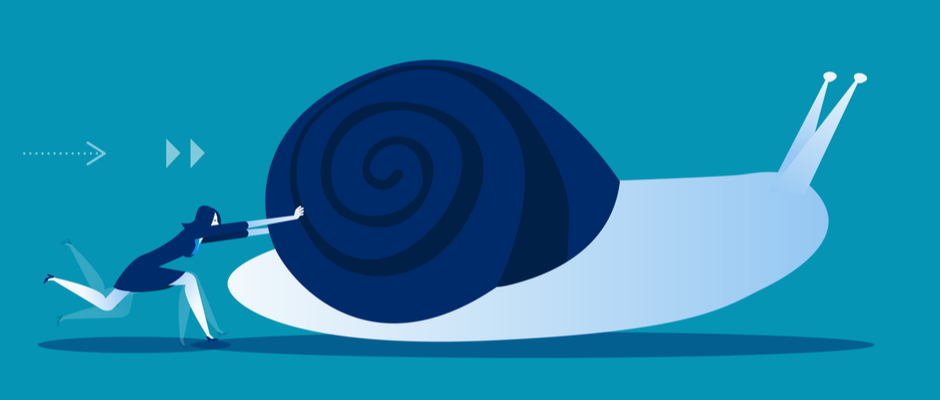The Gist:
- Those who insist that they need the best product to sell mistakenly believe that the product is the key variable to their success, not their skills and abilities.
- Because people value different things, companies create different levels of value at different price points, to better serve their customers and grow their share of the market.
- The best way to improve your sales of an inferior product is to recognize that some clients believe that product serves them better than a higher-priced, higher-quality option.
One belief that can help you improve your results in sales or leadership is that everything is your fault, even the things that are beyond your control or influence. The idea of a radical personal accountability is that you own your results, good or bad. When you blame external things you disempower yourself, not only limiting your ability to improve your results, but also making it more probable that you’ll give up on your goal—and yourself.
This is a challenging idea for those who want to absolve themselves of the responsibility to try, to exert more effort, to learn, and to adjust their approach. The idea that everything is your fault caused one gentleman to ask me a good question: “What if you have an inferior product?”
The Variations in What People Value
In every major city in the United States and much of the rest of the world, you will find McDonald’s famous golden arches. Those restaurants have sold billions of hamburgers, fries, and Coca-Cola (always best when delivered from a fountain). Unless you are arguing with an eleven-year-old child, you won’t see anyone seriously claim that McDonald’s has the best hamburger available anywhere on earth.
The value of McDonald’s is that it is good for what it is: cheap, fast food, for people who are in a hurry and don’t want to spend a lot of money. The people who prefer something better and slower will choose a restaurant with a white tablecloth, a condescending maître d’, and a cost that is many times more expensive than fast food—partly so they can be seen in the right place by the right people.
Not everyone buys the best product, and people choose to buy better products in some categories than in others. No matter what market you’re in, someone wants—or even needs—your lower-priced product. Even though it isn’t the best, it’s the best for them.
When the Best Product Wins
A very long time ago, there was an electronic box called a VCR (video cassette recorder), a device that allowed one to record television shows and movies. (It also continuously blinked the time 12:00 PM, as no human was capable of understanding how to change the time.) At that time there were two competing technologies, VHS and Betamax. There was wide agreement that Betamax was the better technology, yet the inferior and cheaper VHS became the standard.
The best product doesn’t automatically win over lesser, competing products. The best product wins when someone values it enough to pay more to acquire it. Likewise, the top products generally attract competing products that are built to appeal to people who can’t—or won’t—pay for the best product.
The best products also win when they are effectively sold. Aside perhaps from Apple, few companies regularly generate a long line of people waiting to buy their product or service. Few people will stand in line to buy a $1,500 phone, compared to those who refuse to spend that kind of money for a single device.

How to Sell Your Inferior Product
It is critically important that you believe in your product, your service, your solution, and your company. This is true even if you sell a product that is inferior: if you buy into the false belief that the best product always wins, your attitude will harm your results. The existence of the iPhone doesn’t stop people from using Samsung, Motorola, or LG phones. In fact, Apple recently started offering cheaper iPhones so their otherwise loyal customers wouldn’t have to choose another manufacturer.
The first rule in prospecting is to target the people who will benefit most from what you sell: the people who value it. The people who want the very best product may not need the second-best product. But the rest of the market doesn’t want or need the best product, whether because they can’t afford it or simply don’t value it enough to pay a premium for it.
The Truth About Wanting to Sell the Best Product
I once interviewed a salesperson for an open position I had in a faraway market. During the call, I asked him what he needed to succeed in sales. He responded that he would only take a job where there was huge demand for what the company sold and marketing that ensured everyone would recognize the name and be excited to buy it. Our interview was over the second he finished his response.
The reason a salesperson believes they need the best product is because they believe that the product should sell itself—an incredibly harmful mindset, and one that will ensure the salesperson fails. Especially for those who focus on externalities instead of their own competencies in sales, it’s rarely easy to sell something with a higher price, especially when there is an endless parade of competitors and alternatives.
The primary variable to success in sales is the salesperson, not the product.
Do Good Work
- Recognize the areas where you spend more money because you value something enough to acquire the best, as well as areas where you refuse to pay more because you don’t value something as much.
- Identify the targets who would most benefit from what you sell and who want or need to make concessions, giving up the additional benefits of the best product to have something that better serves their needs.
Work on improving your ability to sell by reading, studying, getting training, and developing yourself in your chosen profession.

Get the Free eBook!
Your guide to become a sales hustler
Hustlers pursue opportunities. They give themselves lots of chances to be successful. Discover what it takes to become the best hustler around.
Download Now







.jpg?width=768&height=994&name=salescall-planner-ebook-v3-1-cover%20(1).jpg)


